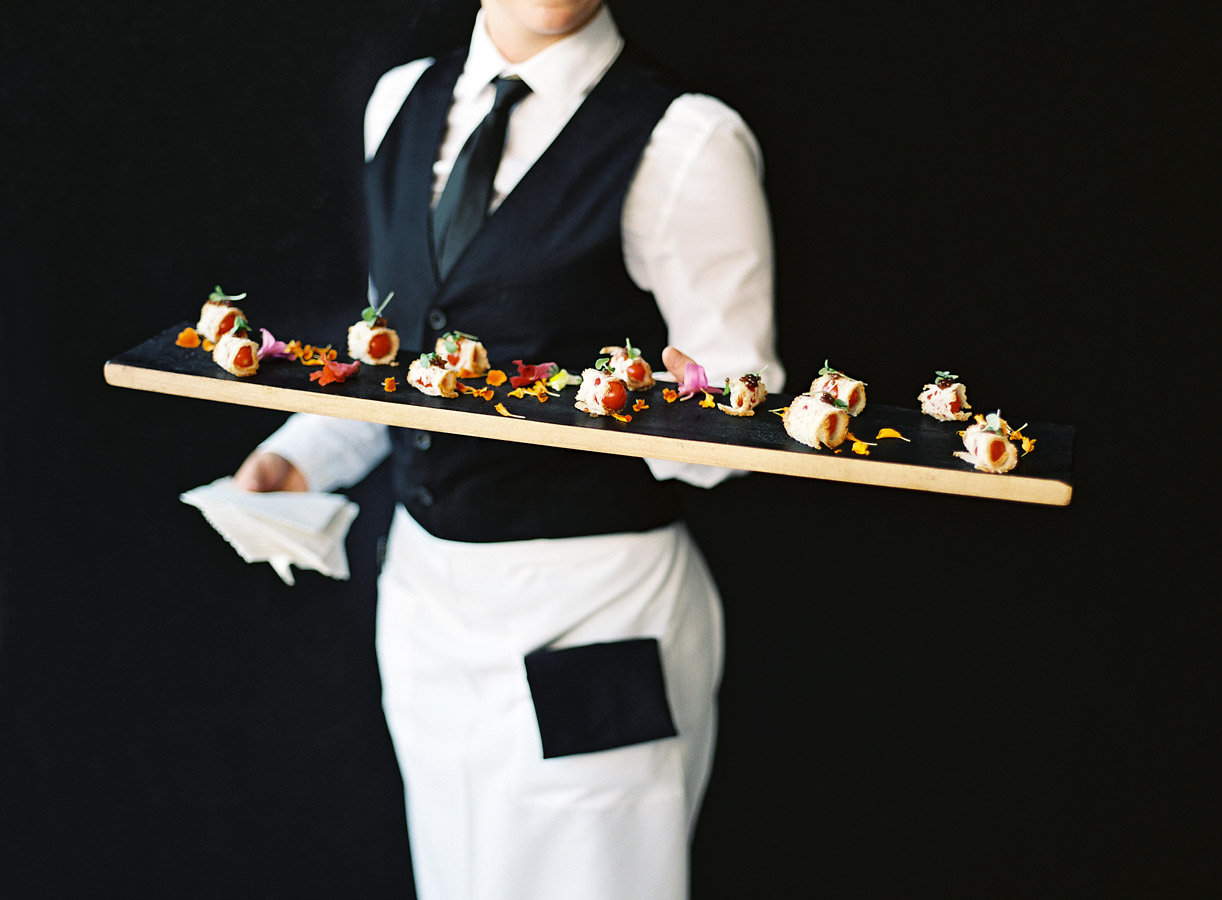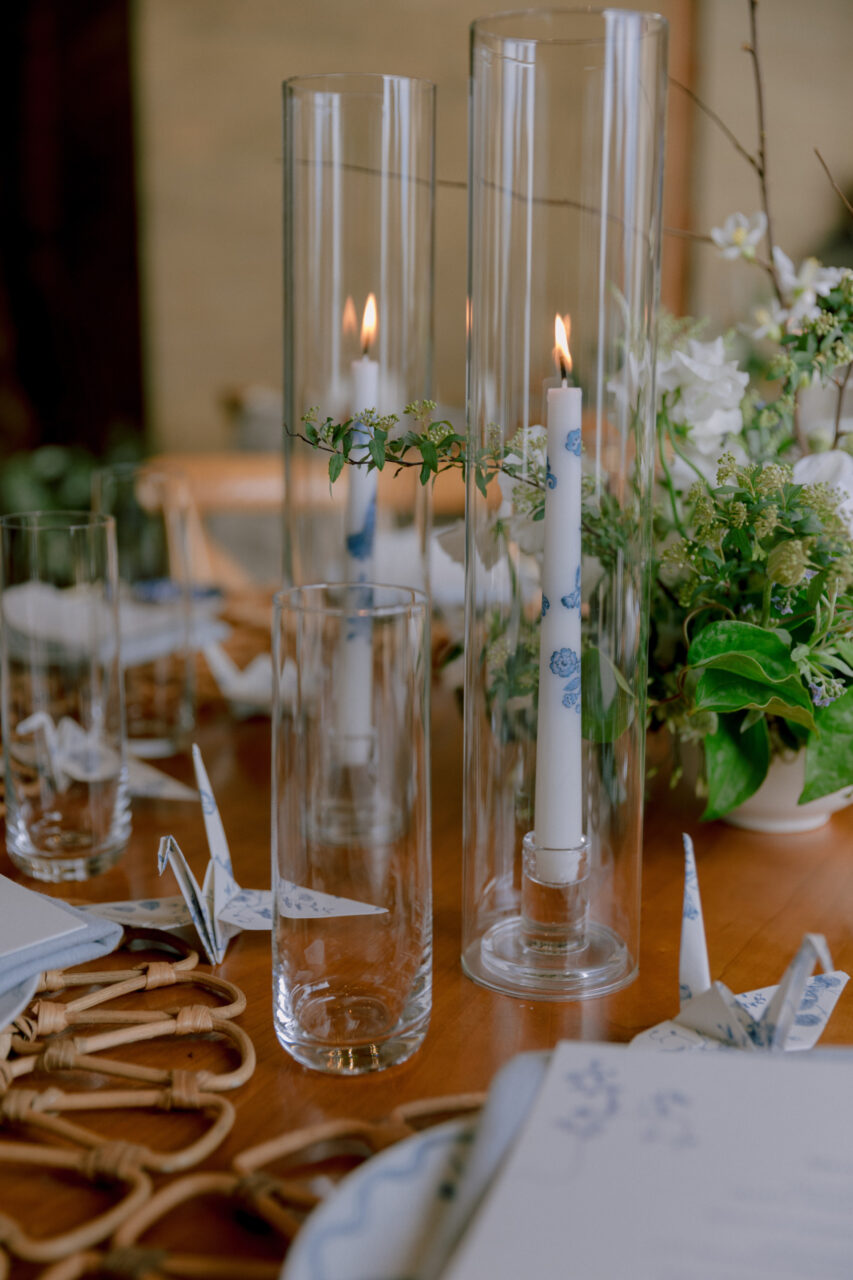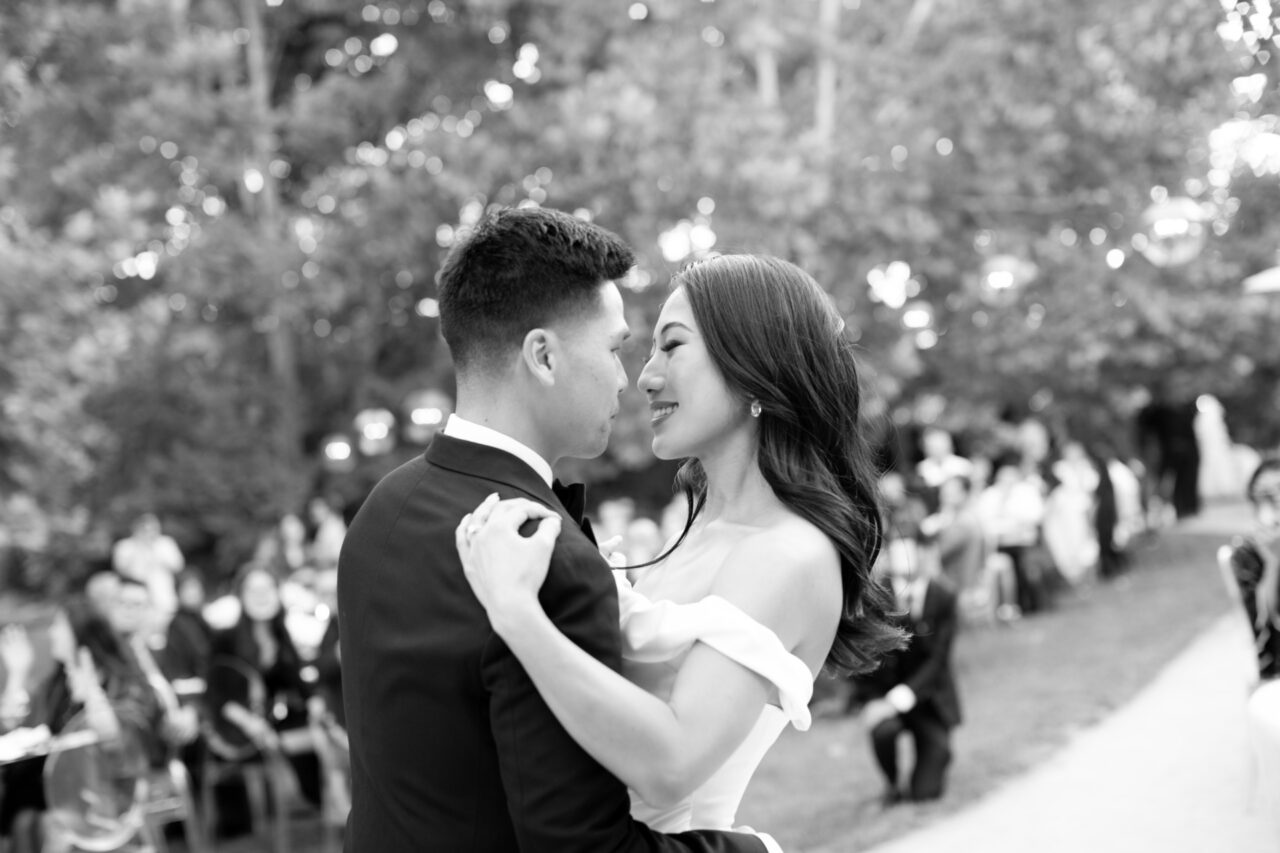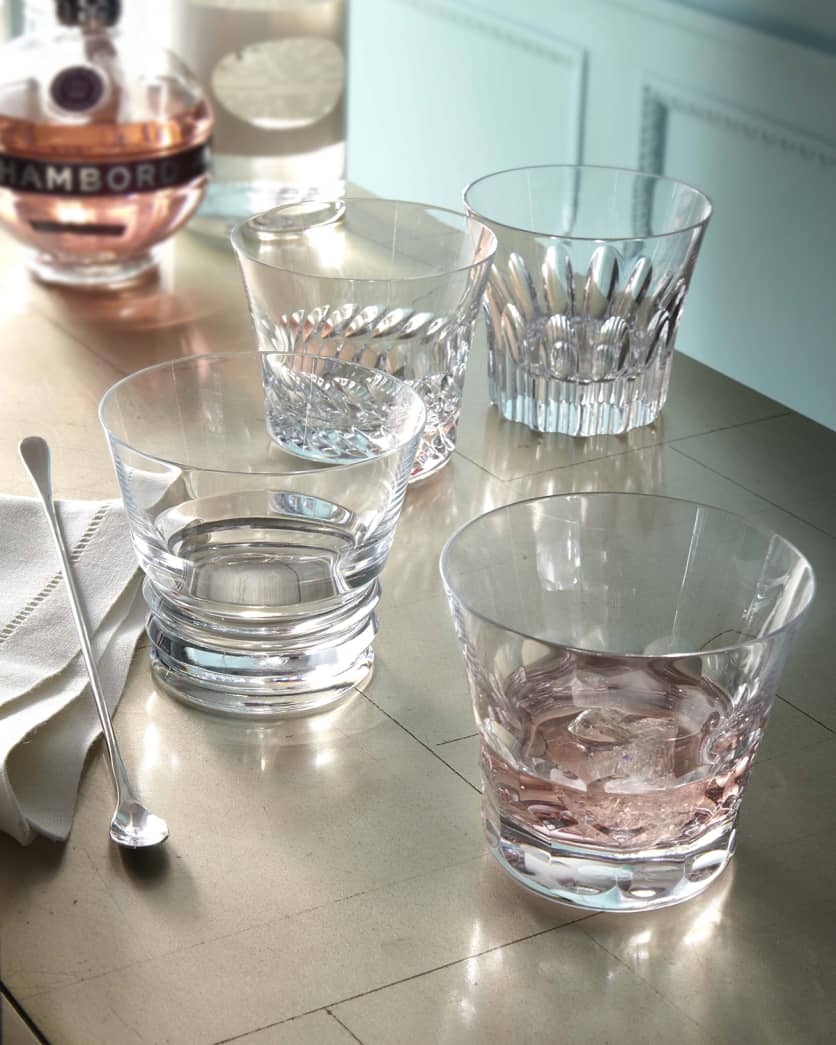As the world gets more and more exposure to the art of food, so many couples struggle with giving feedback to chefs during food tastings. While we always always insist on cultivating a respectful relationship, the main difference between chefs who focus on weddings and traditional chefs is the openness to collaborating on a menu that’s reflective of your preferences and style as a couple. That said, the food tasting is the perfect outlet to refine that vision accordingly. With that in mind, here are just a few tips to have a productive food tasting:
BE HONEST ABOUT LIKES & DISLIKES
Don’t use this as a time to be overly critical for the sake of being critical, but feel free to mention preferences to guide the chef and catering team accordingly. If you personally prefer a little less salt in your dishes, say so. If your palate likes cleaner foods or you find heavy comfort foods more celebratory, express that accordingly. Use the food tasting to not only sample the dishes but truly be upfront and transparent about what you’re loving and not loving.
THINK ABOUT PRESENTATION
During the food tasting, the chef will typically prepare at least one sample plate that represents exactly how the dish will look when it arrives in front of your guests at the wedding. Just like with the flavors, you should feel free to mention if you like food to appear a bit more composed and artfully displayed with a lot of negative space on the plate, or if you prefer a more approachable, farm to table presentation with lots of food filling the entire plate. The chef may guide you towards other food choices if your initial choices don’t lead to your aesthetic preferences but starting the dialogue can get you that much closer to reflecting your vision for the day.
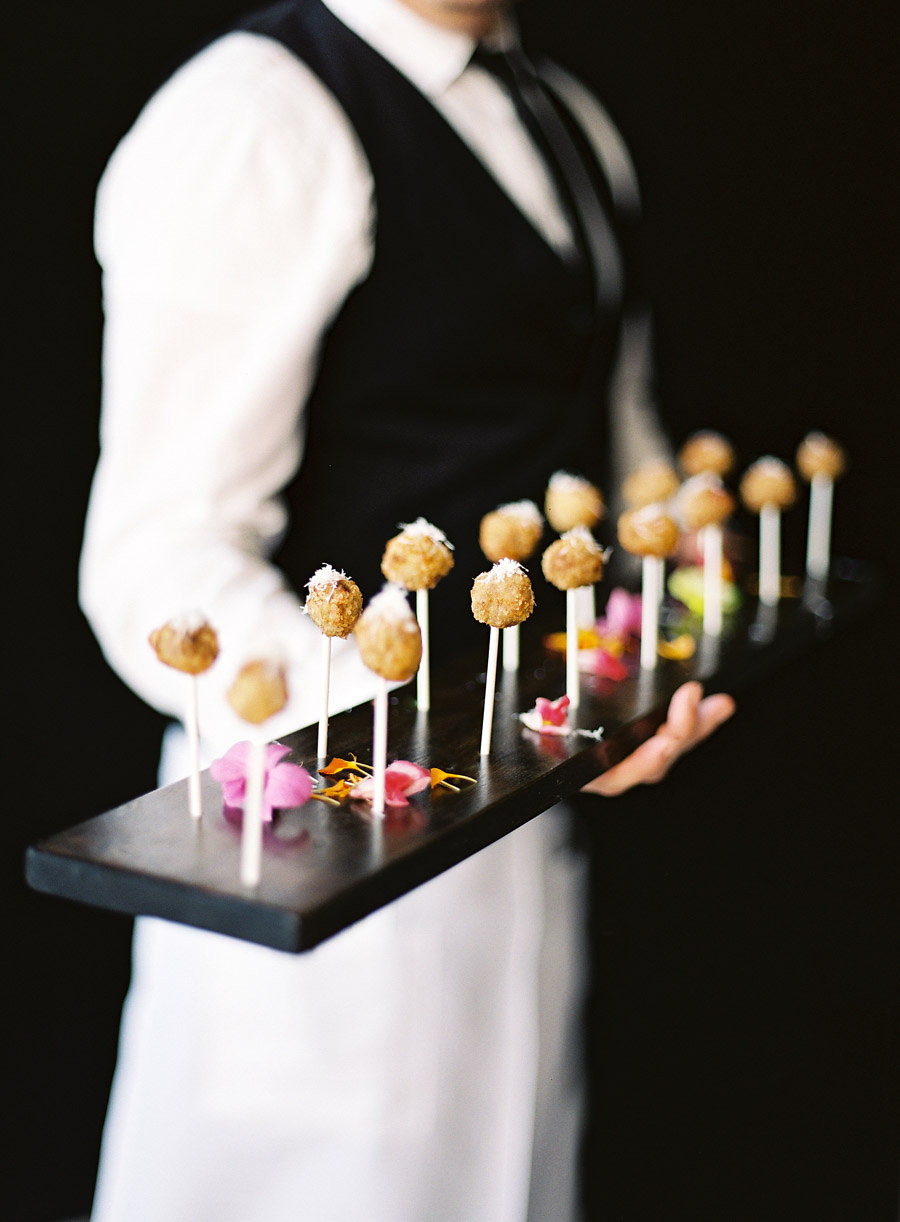
TALK ABOUT SERVICE
If you haven’t previously, talk to the chef and catering manager about how the food is handled and how many servers and catering staff will be servicing your event. Don’t be afraid to be curious and ask how and where the food is prepared as well as how far in advance they are prepping the meal. While every chef is different in their prep times and execution, they should be confident enough in their approach to walk you through the why’s behind their process and how they use said process to guarantee success. Likewise, touching on the number of servers in attendance can help you understand the type of experience guests should have. If you want a more elevated experience, this is the time to talk about hiring additional team members or if you want something a little less stuffy, you can also touch on this detail and refine the number of staffing accordingly during this conversation.
ATTEND COMFORTABLY HUNGRY
Don’t come to the tasting so hungry that anything will satisfy your palate but also don’t attend the tasting straight from a big lunch. While most chefs will prepare a lot of options, if you’re too full or too hungry, you won’t be able to have a proper assessment and dialogue with the culinary team at either extreme.
Overall the food tasting is the perfect opportunity to develop a rapport with your chef and culinary experts and if approached right, it can be one of the best parts of the planning process. It’s a fun place to get a little creative and the one and only time where it’s perfectly acceptable to guide a professional chef towards dishes and preparation that you may like a wee bit differently. Bon Apetit!
Images from Brian & Chad’s Wedding with catering from Room Forty as captured by Steve Steinhardt.
